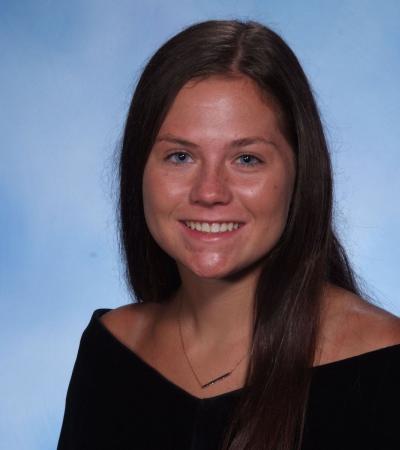Non-State Actors’ Role in Alleviating the Refugee Crisis in Morocco
Experiencing the World Fellowship
Kaya Responsible Travel: Jossour Forum des Femmes Marocaines
Adviser: Julia Kowalski
Final Report:
This summer I had the privilege of interning at a local non-profit organization in Rabat, Morocco that worked to train and educate African immigrants and refugees. My project was focused on investigating the creative solutions designed by non-state actors in Rabat to help alleviate the refugee crisis and to explore migrants’ roles in these situations. The non-profit provided great support to immigrants and refugees by giving them training in the restaurant, bakery, and hotel industries to give them a direct pathway to employment and economic independence. My experience was full of both challenges and rewards that allowed me to understand both Morocco and refugee issues better.
While I was told that my workplace would be English speaking (or at least one employee who spoke English), I quickly discovered that this wasn’t the case when I arrived for work on the first day. My boss, and the two women who worked there, only spoke French and Arabic. Thankfully, I speak high school level French and was able to get by. However, there were many times where communication with my boss wasn’t always perfect, and it was sometimes unclear what tasks he wanted me to complete.
Although this was an unexpected challenge, it was truly a learning experience that greatly improved my French which I am very thankful for.
One day, my boss instructed my coworker and me to teach English lessons to the migrants. I have zero experience teaching English, let alone to French speakers when I am not great at French! We quickly scoured the internet for online resources on how to teach English to non-native speakers and began developing lesson plans. Teaching lessons was really exhausting, and there was a huge learning curve as this was my first time teaching, but it was one of the most rewarding experiences I’ve encountered.
It allowed me to develop trusting relationships with many of the migrants, which led to deeper conversations as they were more willing to open up to me. We were really able to cater the lessons to what the migrants wanted and needed. We would ask them why they were learning English and what words and phrases they needed to know, and then integrate them into our lesson plans since we had so much freedom in developing the lessons. I think this helped them trust us more and appreciate our efforts on a deeper level.
One of the main obstacles of teaching was that the migrant group was extremely varied in terms of their backgrounds in English. There were times when an advanced student would be frustrated while going through the alphabet, while another was struggling to grasp the pronunciation. However, I began to learn that this was a true blessing because the students began to help each other. A special moment that I encountered was before class one day when one of the advanced students was writing the English alphabet on the board and sounding out the pronunciation to the rest of the class. It was a really beautiful moment to see how they all came from different countries and backgrounds, but were now connected and supported each other. In the other group, there was an advanced student who sat next to a younger woman who basically had no English background. She was quiet, and he was not. So, each lesson, he would help her and answer any individual questions she was too scared to ask us. From these interactions, I learned that the relationships among the migrants were the most valuable to them. In a foreign country where many were without any family, they were able to meet others similar to them and support each other. This was a great thing, and I think it was one of my biggest takeaways from the work.
Finally, the most important takeaway from this experience was that forming these connections allowed me to see them as real people, not just refugees or migrants. I learned the exact circumstances that led them to where they are now, the struggles they faced, and the things they needed to escape their precarious situation. I believe that the non-profit’s solution of training them in growing industries in Morocco was ingenious. It empowered them to feel as though they had purpose and were contributing to society, and led to economic independence. I was proud to contribute to a project that respected the innate dignity of each migrant and understood that for migrants to become permanent residents, they needed economic independence as well as empowerment.
I am thankful for my experience in Morocco, and that I was able to make a foreign place seem so familiar. On my walk to work in the morning I enjoyed watching shopkeepers open their shops, bakers placing fresh pastries in the display fridge, men on bikes carrying cartons full of live chicken, fisherman walking carts of freshly caught fish to markets, and throwing extras to a corner where all the cats lived. It was quiet yet bustling with energy in preparation for the day. I loved to go to my coffee guy every day, and he would know my order before I said it. This experience was truly invaluable as it taught me about Moroccan culture, immigrant and refugee stories, and my own strengths. I will forever be grateful to this rewarding and illuminating experience.






